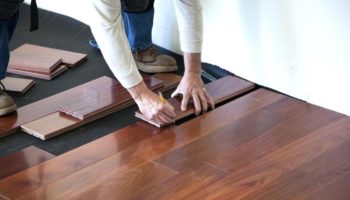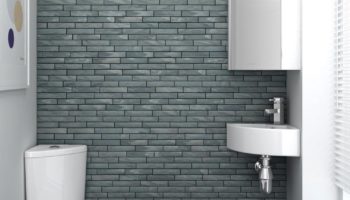Homes that are located in rainy climates are in strong need of proper basement waterproofing systems. To deal with excess water, whether coming from frequent rain or underground springs, you must have the adequate equipment.
Have in mind that the consequences of water traveling through your home’s structure are very dangerous. The worst-case scenario is foundation cracks and roof collapse. The best is mold growth and floods.
If for some reason, you are still skeptical about basement waterproofing, check out these 5 dangerous warning signs:
- Moisture & Mold
Some people tend to ignore moisture in homes. But, most of them don’t know how moisture is the first sign of water damage.
Whether because of leaky pipes or breaches from underground springs, water can get trapped inside your home and do immense damage.
The first unwanted consequence of water damage is mold growth. Usually it cannot be seen on the outside, but even when growing solely inside your walls, mold can cause asthma attacks and severe allergic reactions.
Its reproductive process is really fast, so if you have it only one corner, sooner than later it will spread throughout your entire house.
- Cracks
Before your basement becomes flooded, certain holes in your walls and floors will appear. Concrete isn’t as strong as it looks. If the right quantity of water puts pressure on it, it will crack in no time.
With every crack on your walls or floors, your home loses a couple of dollars in value. Don’t gamble away your investment by letting water ruin your home’s foundation.
As soon as you notice cracks in windows, walls and floors, contact professionals or fix them with an easy DIY method. However, just filling your cracks with repair cement won’t cut it. You still have to find out the reason behind these breaches.
To do this, schedule a free consultation where an experienced professional will investigate the entire area.
- Frequent Leaks
After cracks come leaks. Moreover, if those leaks are left unattended, they will eventually grow into massive floods. Nobody wants to deal with a pool in their basement, especially if it’s created by dark and contaminated sewer waters.
Yes, without a sump pump and backwater valves, sewer water can enter your basement and flood the entire area. But some leaks occur because of other reasons such as old windows, a cracked foundation or detached gutters.
Placing a towel or bucket next to the leak isn’t enough. You have to identify the reason and prevent it from happening ever again. This is usually done by a proper waterproofing system.
- Stained Walls
Most of the times before mold, cracks, and sewer floods appear, you will have to face stained and damp walls. Consider yourself lucky if you notice wet spots on your walls.
This means that your house is telling you early on that you have excess water traveling wherever it pleases.
Sometimes stained walls happen because of leaky pipes or broken water appliances. Make sure to schedule piping inspections to see whether you need basement waterproofing or a drain snake to unclog your pipes.
If you don’t water your backyard regularly, tree roots will go looking for other water sources. During this journey, they will discover your pipes and start using them for water. This ends up in you having clogged piping and unhealthy trees in your garden.
- Unpleasant Smells
When water gets stuck inside structures like walls and floors, all kinds of odors appear. Even though it sounds unpleasant, follow the smell with your nose and find out where it’s coming from. Sometimes it can be due to a broken washer and other times it can be a sign for mold growth.
Don’t underestimate these smells, especially if you are planning to create a living area out of your basement. Renting out the space would be much difficult if don’t address the underlying issue.
Rest assured that funny odors in basements and attics aren’t normal and usual. They are always signs that something more serious is happening in our homes. The smell is different depending on the cause, so expect it to even remind you of sewer.






